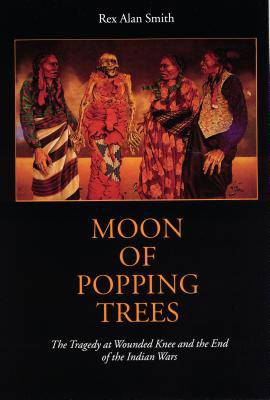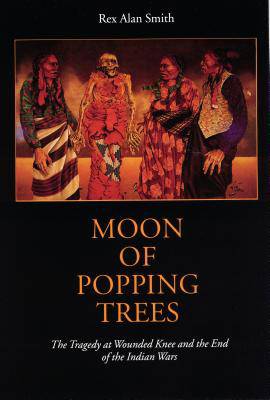
- Afhalen na 1 uur in een winkel met voorraad
- Gratis thuislevering in België vanaf € 30
- Ruim aanbod met 7 miljoen producten
- Afhalen na 1 uur in een winkel met voorraad
- Gratis thuislevering in België vanaf € 30
- Ruim aanbod met 7 miljoen producten
Zoeken
Omschrijving
The last significant clash of arms in the American Indian Wars took place on December 29, 1890, on the banks of Wounded Knee Creek in South Dakota. Of the 350 Teton Sioux Indians there, two-thirds were women and children. When the smoke cleared, 84 men and 62 women and children lay dead, their bodies scattered along a stretch of more than a mile where they had been trying to flee. Of some 500 soldiers and scouts, about 30 were dead--some, probably, from their own crossfire. Wounded Knee has excited contradictory accounts and heated emotions. To answer whether it was a battle or a massacre, Rex Alan Smith goes further into the historical records and cultural traditions of the combatants than anyone has gone before. His work results in what Alvin Josephy Jr., editor of American Heritage, calls "the most definitive and unbiased" account of all, Moon of Popping Trees.
Specificaties
Betrokkenen
- Auteur(s):
- Uitgeverij:
Inhoud
- Aantal bladzijden:
- 238
- Taal:
- Engels
Eigenschappen
- Productcode (EAN):
- 9780803291201
- Verschijningsdatum:
- 1/04/1981
- Uitvoering:
- Paperback
- Formaat:
- Trade paperback (VS)
- Afmetingen:
- 135 mm x 202 mm
- Gewicht:
- 272 g

Alleen bij Standaard Boekhandel
+ 60 punten op je klantenkaart van Standaard Boekhandel
Beoordelingen
We publiceren alleen reviews die voldoen aan de voorwaarden voor reviews. Bekijk onze voorwaarden voor reviews.











